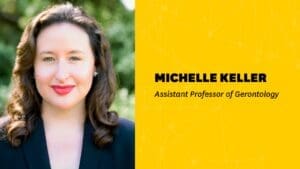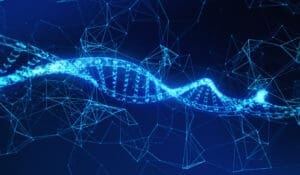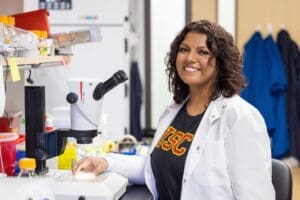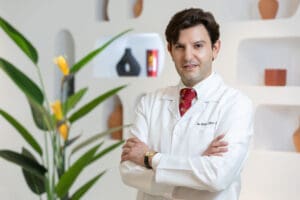Asian Journal quoted USC Family Caregiver Support Center Director Donna Benton on the need to recognize caregivers as essential frontline workers. “Many times the care we have here in California the majority of care is done by us: family members and elder caregivers. We are an essential part of the health care system,” she said.
Consumer Reports quoted Cary Kreutzer in an article on how older adults can meet their protein needs. “While [protein drinks and enriched foods] may be high in protein, someone eating a predominantly plant-based diet would still need to be sure they were balancing protein sources to not be deficient in single amino acids that are considered essential,” she said.
During an Ethnic Media Services community conversation with ethnic media organized by Saint Paul AME Church in San Bernardino, Black Voice News, and California Black Media, community leaders and Black family caregivers discussed the importance of vaccines in helping keep themselves safe and able to care for their families. Family caregivers have not been considered essential workers, and therefore were ineligible to be first in line when Covid vaccines appeared on the scene in early 2021, said Donna Benton, director of the USC Family Caregiver Support Center and the Los Angeles Caregiver Resource Center. There are more than 4.5 million family caregivers in California alone, but Benton said they are largely invisible in the broader healthcare system. “Caregivers are saying ‘we want the masks.’ We need PPE. We need to be prioritized for boosters, and also for testing,’” she said.
ScienceDaily highlighted an editorial coauthored by Mara Mather on how the locus coeruleus region of the brain, also known as the “blue spot,” helps focus attention on relevant information. “Due to its small size and its location deep in the brainstem, it was previously almost impossible to investigate the noradrenergic nucleus non-invasively in living humans. Fortunately, over the past years, animal research has revealed that fluctuations in pupil size are linked to the activity of the blue spot. Thus, our eyes can be regarded as a window to a brain region that long seemed inaccessible,” Mather said.
Hindustan Times feautred Valter Longo, who spoke during a session on the third day of the Hindustan Times Leadership Summit. He said that nutrition may be the key factor that determines whether or not we develop age-related diseases. “We can argue, based on over 100 years of research, that nutrition is by far the most powerful way to alter how fast we age, and also alter whether we will develop age-related disease like diabetes, cancer, cardiological and neurodegenerative diseases,” he said, adding that reversing ageing and controlling weight is crucial for saving lives not only from dozens of disease, but also from Covid-19.
CBS Sunday Morning interviewed Valter Longo for a story on the remarkable prevalence of centenarians on the island of Sardinia in Italy. When asked about genetics versus lifestyle and their impact on longevity, Longo said, “If you think about an athlete that wins lots of gold medals, you probably have to have the genetics. But then you have to have the training, et cetera, et cetera. So, I think that the genetics set you up, but they’re not gonna get you there alone. So then, the lifestyle, and particularly the food, is a key factor.”
Healthline quoted Valter Longo in an article on the science behind “anti-aging” diets. Longo said part of the challenge is that researchers, scientists, and clinicians often work in isolation. “What’s missing is a multi-disciplinary approach. If you put all [the research] together, you get a very different picture — with certain nutritional interventions not only consistently associated with health, but also with longevity.”
Democrat & Chronicle (Rochester, NY) mentioned the USC Family Caregiver Support Center and director Donna Benton in an article about caregiving and isolation in the Black community. Community leader Bobbe Akalonu began attending a support group and caregiver meetings held on the USC campus and then worked with Benton to start a caregiver support group at the First AME Church in Los Angeles. “We’ve been a part of the focus groups that come out of research that relates to not only caregiving, but elders who are experiencing the isolation of this particular period of time,” Akalonu said. “The School of Gerontology at USC is the oldest one in the world. And they are critical to some of the research that’s being done with elders. So, I felt that with the match and the mix of experiences for caregivers, you benefit from something that is a part of a positive interaction rather than a negative one.”
Finger Lakes Times mentioned research by Caleb Finch and Berenice Benayoun in an article on differences in lifespan between men and women. Finch said trying to tease out what’s affecting our aging is like analyzing a “hoard of arrows shot into the air” at the same time but traveling at different rates. Genes and hormones matter, but “the role of culture and society in shaping the outcomes is also huge and not easy to define at the molecular level.”
MindBodyGreen mentioned Valter Longo in an article on eating for longevity.






